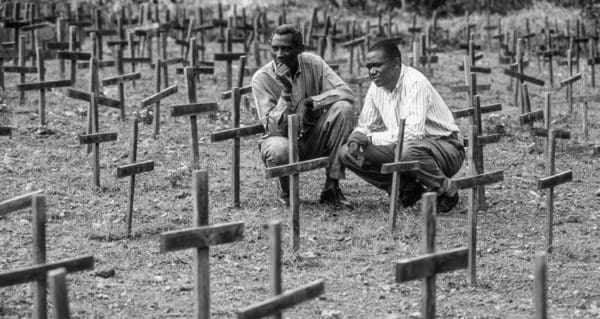 “When you listen to a witness, you become a witness,” Elie Wiesel often said.
“When you listen to a witness, you become a witness,” Elie Wiesel often said.
Those words are the driving force behind the March of the Living, an event that brings thousands of young people from around the world to Poland every spring. There they visit the places where crimes against humanity took place.
The name March of the Living is in stark contrast to the infamous death marches, during which innumerable people perished. They were forced by the Nazis at gunpoint to go from concentration camps in Poland to camps in Germany as the Soviet army advanced in early 1945.
What’s particularly powerful about the March of the Living is that the young people are accompanied by Holocaust survivors who tell them their stories and walk with them. Many of the youths are grandchildren and great-grandchildren of the very people the Nazi death camps sought to destroy.
The unmasking of concentration camps at the end of the Second World War was a pivotal moment in human history. It was terrifying proof of the dangers of racism and extreme nationalism. The newly-formed United Nations responded by defining genocide in 1948, and the world declared, “Never again!”
Throughout the Cold War, “never again” fundamentally meant pointing to the crimes against humanity committed by the other side. But since the early 1990s, we have all been able to look honestly at what happened – and what is still happening in so many parts of the world.
When we scratch the veneer of history, we begin to see that genocide is not only a part of the history of Germany. It’s arguably a part of the history of every colonial power. In some places, it has been glossed over as “civil war.” And it remains part of the story of much of the world today.
Studying genocide helps give a voice to the victims. And by listening to survivors, we validate and empower them – and we are changed. We cannot unlearn what they teach us, and we have no choice but to continue their mission.
Understanding genocide gives us a powerful lens to look at the world. We see evil exposed for what it is: a horrible and ridiculous lie.
When we look at the vast numbers of descendants of Holocaust survivors participating in the March of Life and see the tremendous contributions they make to the well-being of others, how can we dare to say that any form of racism can ever be justified? How can we dare to say that those suffering from oppression today should not be helped?
We shall overcome crimes against humanity by Gerry Chidiac
Attacks on places of worship are based on the horrendous lie that we need to fear those who are different
Indeed when we help others, we help ourselves. Imagine all the good that would be happening in the world today if mankind had only had the courage to save more people from Hitler’s tyranny!
Genocide studies have a powerful impact on the education of today’s young people. Although it was already mandated in some jurisdictions (primarily those with a strong Jewish lobby), when I began teaching genocide studies in 2008, only a few high school programs were scattered throughout the province. Today, Genocide Studies 12 is outlined and approved by the British Columbia Ministry of Education.
Many of us have crimes against humanity in our family histories – as survivors, as perpetrators or as both.
When we honour the victims of genocide, we are changed. We have no choice but to work for a more just world. As more of us grow in awareness, we cast a powerful light on the darkest shadow of humanity.
We all become witnesses.
Gerry Chidiac specializes in languages, genocide studies and works with at-risk students. He is the recipient of an award from the Vancouver Holocaust Education Centre for excellence in teaching about the Holocaust. For interview requests, click here.
The opinions expressed by our columnists and contributors are theirs alone and do not inherently or expressly reflect the views of our publication.
© Troy Media
Troy Media is an editorial content provider to media outlets and its own hosted community news outlets across Canada.



Thank you for your article!
just came across it and can only say 100% right.
I work for March Of Life and can only underline what you wrote about giving victims of the holocaust a voice, listening to them and also, as a German, asking for forgiveness.
My friends and I have experienced this when dealing with the stories of our forefathers and publicly asking holocaust survivors and their descendants for forgiveness for what our fathers (!), grandfathers and great grandfathers have done.
At the end of this video five of my friends openly talk about what their forefathers did: https://youtu.be/T885WA_PGJI?t=4m24s